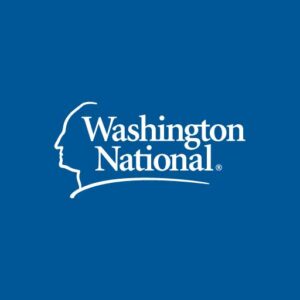
This is an advertisement and solicitation.
The No Surprises Act: How to protect yourself
What is the No Surprises Act?
The No Surprises Act (NSA) is a new consumer protection law that went into effect on January 1, 2022. It’s a federal law that gives protections for consumers against surprise medical bills and removes consumers from payment disagreements/disputes between a provider or health care facility and their health plan.
According to the Centers for Medicare & Medicaid Services (CMS), a division of the Department of Health and Human Services (HHS), the NSA protects people covered under group and individual health plans from getting surprise bills when they receive emergency services and non-emergency services from out-of-network providers at in-network facilities and services from out-of-network air ambulance or ground ambulance service providers.
Unfortunately, surprise medical bills are common in health care
According to the Kaiser Family Foundation, about 1 in 5 emergency room visits result in surprise bills. Surprise medical bills happen when someone with health insurance unknowingly receives care from out-of-network hospitals, doctors or other providers that they did not choose. It’s estimated that between 9% and 16% of in-network hospitalizations for non-emergency care include surprise bills from out-of-network providers like anesthesiologists which the patient doesn’t get to choose and they frequently end up paying dearly.
Surprise medical bills are not only unfair to those who are careful about choosing in-network providers, but they can also cause a huge financial burden when your health plan denies out-of-network claims or applies higher out-of-network cost sharing.
These surprise bills also include something called “balance billing” which means a health provider bills you for the difference between what they charge and the amount allowed. Here’s an example of balance billing: Let’s say your medical provider’s charge is $100 for a visit and the allowed amount is $70, the provider may bill you for the remaining $30.
According to the Kaiser Family Foundation, the federal government estimates the No Surprises Act will apply to about 10 million out-of-network surprise medical bills a year.
What does the No Surprises Act mean for you as a consumer?
How the NSA impacts you as a consumer depends upon whether or not you are covered by insurance.
If you are uninsured or are self-paying:
The CMS states that if you don’t have insurance or you choose to pay for your care without using your insurance (also known as “self-paying”), the new rules associated with the NSA will ensure that you can get a “good faith estimate.” A good faith estimate is a list of expected charges for how much your care will cost and how much you will pay before you get the care.
Providers and facilities must provide you with a good faith estimate if you request one before you’ve scheduled an item or service or after you’ve scheduled an item or service. An example is if you’re going to have surgery; your good faith estimate would include the cost of the surgery, related lab services, tests, and the anesthesia used during the surgery. Some services related to your surgery that are scheduled separately like pre-operative appointments or physical therapy in the weeks after the surgery, might not be included in the good faith estimate.
If you are insured:
The CMS outlines new protections if you have health insurance, whether that’s through your employer, the Health Insurance Marketplace®, or an individual health insurance plan you purchase directly from an insurance company. These new rules will:
- Ban surprise bills for emergency services, even if you get them out-of-network and without approval beforehand (prior authorization).
- Ban out-of-network cost-sharing (like out-of-network coinsurance or copayments) for all emergency and some non-emergency services. You can’t be charged more than in-network cost-sharing for these services.
- Ban out-of-network charges and balance bills for supplemental care (like anesthesiology or radiology) by out-of-network providers who work at an in-network facility.
- Require that health care providers and facilities give you an easy-to-understand notice explaining that getting care out-of-network could be more expensive and options to avoid balance bills. You’re not required to sign this notice or get care out-of-network.
How supplemental health insurance can help!
The fact that the No Surprises Act has become law is great news for consumers but it still doesn’t prevent the cost of high medical bills that aren’t surprises should you suffer from an accident, critical illness, heart attack/stroke, cancer, or hospitalization. Supplemental health insurance can help you and your loved ones fill the gaps that your regular insurance might not by providing peace of mind and financial protection. It’s important to note that supplemental health insurance is for anyone no matter what your relationship status—whether you’re single or married, family or no family—illness and injury can happen to anyone.
If you are an employer, providing supplemental health insurance to your employees can help them too!
What is supplemental health insurance?
Supplemental health insurance complements your major medical insurance to help protect you and your family from costs associated with serious illness or hospitalization. In such an event, your share of treatment costs may add up quickly. Not to mention, your non-medical, everyday expenses like house payments and groceries that still need to be paid. Supplemental health insurance provides benefit payments directly to you—so you and your family can focus on your recovery, not your finances.
Even with major medical insurance, most deductibles, copays, coinsurance and some treatments and procedures are still not covered.
According to healthcare.gov, your cost-sharing amount is the share of costs covered by your insurance that you pay out of your own pocket. This term generally includes deductibles, coinsurance, and copayments, or similar charges, but it doesn’t include premiums, balance billing amounts for non-network providers, or the cost of non-covered services.
These costs and other non-medical expenses can add up quickly.
Benefits of supplemental health insurance
- Benefits paid directly to you or your beneficiaries, not the provider.
- Freedom for people to use their benefits however they choose.
- Benefits paid regardless of other insurance, including employer-sponsored major medical.
Discover how Washington National can work for you!
Are you ready to learn more about how supplemental health insurance can benefit you? One of our agents is happy to help! Contact us here to get paired with a local Washington National agent.
LIMITED-BENEFIT POLICIES. Supplemental health insurance policies have limitations and exclusions. For costs and complete details of coverage, contact an agent.
Washington National is a private company that is not Medicare, Medicaid or MaineCare and is not a governmental agency
